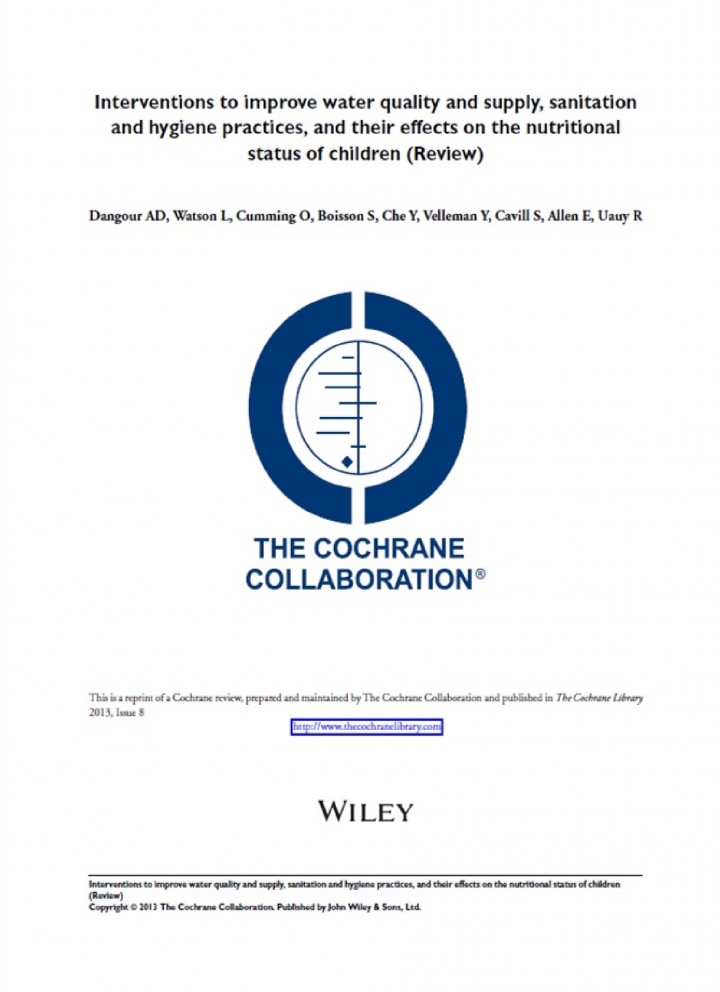Interventions to improve water quality and supply, sanitation and hygiene practices, and their effects on the nutritional status of children (Review)
Dangour, A.D. et al. (2013)

Published in: 2013
Pages: 102
Publisher:
JohnWiley & Sons, Ltd.
Author:
Dangour, A.D. et al.
Uploaded by:
SuSanA Admin
Partner profile:
common upload
4379 Views
43 Downloads
Content - Summary
The effect of interventions to improve water quality and supply, provide sanitation and promote handwashing with soap on physical growth in children In low-income countries an estimated 165 million children under the age of five years suffer from chronic undernutrition causing them to be short in height and 52 million children suffer from acute undernutrition causing them to be very thin. Poor growth in early life increases the risks of illness and death in childhood. The two immediate causes of childhood undernutrition are inadequate dietary intake and infectious diseases such as diarrhoea. Water, sanitation and hygiene (WASH) interventions are frequently implemented to reduce infectious diseases; this review evaluates the effect that WASH interventions may have on nutrition outcomes in children. The review includes evidence from randomised and non-randomised interventions designed to (i) improve the microbiological quality of drinking water or protect the microbiological quality of water prior to consumption; (ii) introduce new or improved water supply or improve distribution; (iii) introduce or expand the coverage and use of facilities designed to improve sanitation; or (iv) promote handwashing with soap after defecation and disposal of child faeces, and prior to preparing and handling food, or a combination of these interventions, in children aged under 18 years.
We identified 14 studies of such interventions involving 22,241 children at baseline and nutrition outcome data for 9,469 children. Meta-analyses of the evidence from the cluster-randomised trials suggests thatWASH interventions confer a small benefit on growth in Interventions to improve water quality and supply, sanitation and hygiene practices, and their effects on the nutritional status of children 2 children under five years of age. While potentially important, this conclusion is based on relatively short-term studies, none of which is of high methodological quality, and should therefore be treated with caution. There are several large, robust studies underway in lowincome country settings that should provide evidence to inform these findings.
Bibliographic information
Dangour, A.D. et al. (2013). Interventions to improve water quality and supply, sanitation and hygiene practices, and their effects on the nutritional status of children (Review). JohnWiley & Sons, Ltd.
Filter tags
East Asia & Pacific English Schools WASH and nutrition (WG12)















